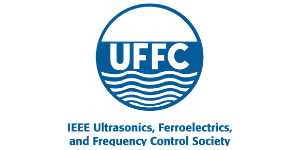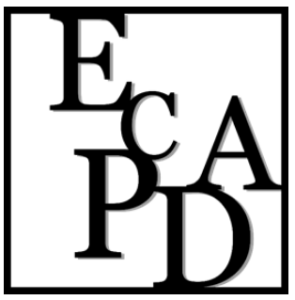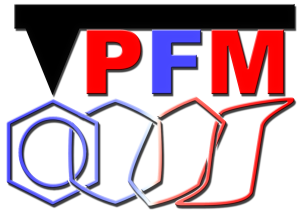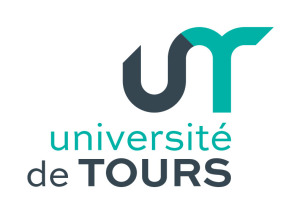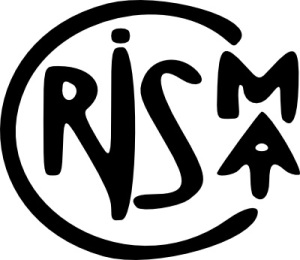Shujun Zhang is a Professor of the Institute for Superconducting and Electronic Materials, Australian Institute for Innovative Materials, University of Wollongong, Australia, prior to which, he was a senior scientist of the Materials Research Institute and Professor of the Materials Science and Engineering Department of Pennsylvania State University, USA. He has authored/co-authored over 500 technical papers (28,000 citations with H-index of 80 on Google Scholar) and holds 10 patents in the field of dielectric and piezoelectric materials. His research interests are focused on the fabrication-microstructure-property-application relationships of electronic materials for piezoelectric sensor, acoustic transducer, and energy storage/harvesting applications. Prof. Zhang has received a number of awards from various societies, including Fellow of the IEEE Ultrasonics, Ferroelectrics, and Frequency Control Society (UFFC-S, 2021); Fellow of the American Ceramic Society (2019); winner of the Ross Coffin Purdy Award at the American Ceramic Society (2020); the IEEE UFFC-S Ferroelectrics Young Investigator Award (2011) and Ferroelectrics Recognition Award (2021); ARC Future Fellow (2015-2019); Top researcher in the field of Ceramic Engineering in Australia (2021); and winner of one of the NSW Premier’s Prizes for Science & Engineering (2021). He is the TPC member for the IEEE International Ultrasonics Symposium (2014-) and the IEEE International Symposium on Applications of Ferroelectrics (ISAF 2016-), elected IEEE UFFC AdCom member (2016-2018) and VP for Ferroelectrics (2021-). He is the Associate Editor in Chief (EiC) for IEEE Transactions on UFFC, section EiC for Crystals, EiC for Microstructures, and Associate Editor for Science Bulletin and the Journal of the American Ceramic Society. He is the symposium organizer for the Electronic Materials & Applications Conference (ACerS, 2015-) and the general co-chair for the 2021 ISAF-ISIF-PFM conference in Sydney.
Presenter Type: Plenary
Barbara Malic
Barbara Malič is Scientific Councillor and Head of Electronic Ceramics Department, Jožef Stefan Institute, and Professor of Chemistry of Materials at Jožef Stefan International Postgraduate School, Ljubljana, Slovenia. She obtained her PhD (1995) in Chemistry at the University of Ljubljana, Slovenia. She is author or co-author of more than 250 papers, 10 book-chapters, one EU/US/Chinese patent in the field of electrocaloric cooling and 4 Slovenian patents in the field of electroceramics. Her research topics include lead-based and lead-free ferroelectric, piezoelectric and electrocaloric ceramics, multilayer structures, solution-derived functional-oxide thin films and inkjet printed nanostructures. She is Fellow of European Ceramic Society (2019), and recipient of Zois recognition (2010) and Zois award (2020).
S. Salahuddin is the TSMC Distinguished Professor of Electrical Engineering and Computer Sciences at the University of California Berkeley. His work has focused mostly on conceptualization and exploration of novel physics for low power electronic and spintronic devices. Salahuddin received the Presidential Early Career Award for Scientist and Engineers (PECASE) from President Obama. Salahuddin also received a number of other awards including the National Science Foundation CAREER award, the IEEE Nanotechnology Early Career Award, the Young Investigator Awards from the Airforce Office of Scientific Research and the Army Research Office, and the IEEE George E Smith Award. Salahuddin is a co-director of the Berkeley Device Modeling Center (BDMC) and Berkeley Center for Negative Capacitance Transistors (BCNCT). Salahuddin is also a co-director of ASCENT, which is a flagship device technology effort in the US, jointly supported by SRC and DARPA. He served on the editorial board of IEEE Electron Devices Letters (2013-16) and was the chair the IEEE Electron Devices Society committee on Nanotechnology (2014-16). Salahuddin is a Fellow of the IEEE and the APS.
M. Lourdes Calzada is Full Professor at the Materials Science Institute of Madrid at the Spanish National Research Council (ICMM-CSIC), where she is currently the head of the Electroactive Oxides for Smart Devices research group.
Her R&D interests include synthesis by soft-chemistry routes and characterization of nanostructures, thin films and bulk materials of functional metal oxides for microelectronics and flexible electronics; design of homo- and hetero-metallic molecular precursors of high-tech oxides; engineering of high-performance oxide compositions; and sustainable processing methods for advanced materials and emerging technologies. Her current research projects are highly interdisciplinary and mostly focused on the development of low-temperature sol-gel synthesis strategies to attain metal oxide materials and the integration of functional thin films with semiconductor and flexible substrates (Si-technology and Flexible Electronics). She has pushed her group to a world-leadership position on this topic, being pioneer in the low-temperature solution processing of ferroelectric, multiferroic and photoferroic complex oxides for flexible electronic devices.
She has been involved in more than 30 R&D projects and has published more than 200 papers, 9 book chapters and is co-inventor in 3 patents. She has been Guess Editor in the Special Issue of Chemistry – A European Journal, 2020, dedicated to Low Temperature Solution Route Approaches to Oxide Functional Nanoscale Materials. She serves on the editorial board of the ACS Applied Electronic Materials and belongs to different steering committees of international conferences.
Gustau Catalan is a physicist and ICREA Research Professor at ICN2, in Barcelona, where he leads the Oxide Nanophysics laboratory. His research covers emerging properties of oxides at the nanoscale, with emphasis on ferroelectric and antiferroelectric materials. One such property is flexoelectricity, the theme of his tutorial talk for the ISAF meeting, and a property for which he has especial fondness and a dedicated laboratory, one of the first specialized laboratories of flexoelectricity in the world. His experience in his field goes a long way back, starting with his discovery in 2004 that flexoelectricity was a key contributor to the so-called “size effect” of ferroelectric thin films. Since then, he’s participated in several notable advances in the field, such as flexoelectric-induced mechanical writing and mechanical reading of ferroelectric domains, the existence flexoelectricity in semiconductors and bones and, most recently, the photo-flexoelectric effect of halide perovskites.
Dr. Syed A. M. Tofail is an Associate Professor and the Head of the Department of Physics, University of Limerick (UL), Ireland. He is also a member of UL’s Bernal Institute. Dr. Tofail’s group in UL reported electrically polar nature of biological building blocks such as globular protein lysozyme, synthetic bone mineral hydroxyapatite, amino acids including superpiezoelectric beta glycine and membrane protein cytochrome oxidase C. He has given over 60 invited and plenary lectures at international conferences/symposia and received many awards such as University of Limerick Research Impact Award 2014, Irish Medical Device Association (IMDA) Emerging Medical Technology Award, 2013 in Medical Technology Industry Excellence Awards; The Outstanding Young Person (TOYP) Award 2012, Junior Chambers International for Limerick and Ireland; Finalist, Best Project Award 2013 in European Commission FP6 and FP7 funding within the NMP theme. His applied research in surface and interface analysis has saved millions of $s in industrial process and product yield. Dr. Tofail is currently a member of the ADCOM of the Dielectric and Electrical Insulation Society (DEIS) of the IEEE, Chair of European Conference of Applications of Surface and Interface Analysis and a former Chair of International Symposium on Electrets (ISE).








